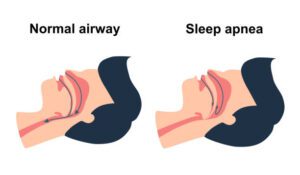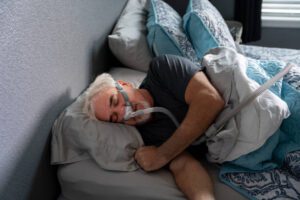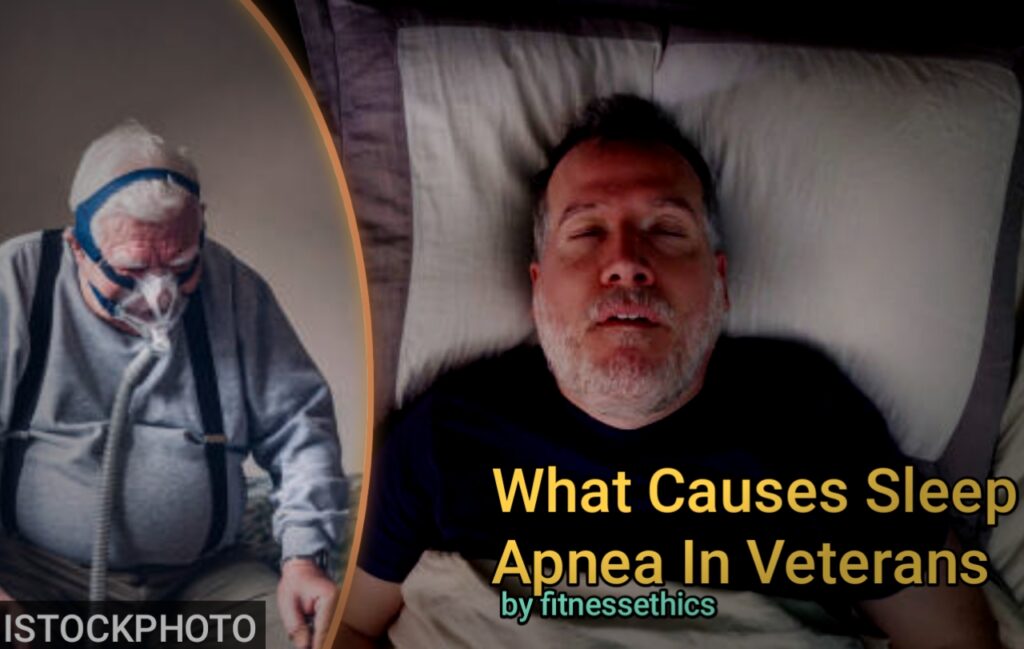Sleep apnea is a potentially serious sleep disorder in which breathing repeatedly stops and starts. Breathing stops for about 10 seconds or more during sleep, and during this period, the person would be awakened. Less oxygen is passed into the blood stream and the person is briefly awake.
Sleep apnea may be of different stages. Normal sleep apnea would cause up to 5 interruptions per hour, while mild sleep apnea would cause between 5 and 15 interruptions per hour. Moderate sleep apnea would cause between 15 and 30 interruptions per hour. Severe sleep apnea can cause more than 30 interruptions per hour.
What Are The Types Of Sleep Apnea?
There are actually two main types of sleep apnea. They are obstructive sleep apnea and central sleep apnea. Of the two types of sleep apnea, obstructive sleep apnea seems to be the most common type. There are more than two types of sleep apnea, but obstructive sleep apnea and central sleep apnea are the most common. Obstructive sleep apnea is a condition that causes you to repeatedly stop and start breathing while you sleep. This particular type of sleep apnea can cause several disruptions while one is asleep. It causes your breathing to stop several times in an hour, and you’ll be awakened once your breathing stops. The breathing can stop for 10 seconds or more.
Central sleep apnea is different from obstructive sleep apnea but not completely different as you basically can’t breath normally during a short period in both. In central sleep apnea, the brain doesn’t send proper signals to the muscles that control your breathing. Obstructive sleep apnea is less common than central sleep apnea.
In summary, in Obstructive Sleep Apnea, principally there’s a problem with the mechanics of your breathing. In central sleep apnea, there’s actually no mechanical problem, but because your brain doesn’t signal your muscles in the right way. This causes you to stop breathing briefly or to breathe so lightly that you don’t get enough oxygen.
Who Is Predisposed to Sleep Apnea?
The risk factors for sleep apnea are mainly age and obesity. It can actually be more common in men.
Age
In rare cases, sleep apnea can also affect adolescents and young adults, but in rare cases, it frequently goes overlooked, blaming bad teenage habits in its place. If sleep apnea begins at the early stages of an individual’s life, then they are more likely to have high blood pressure. Obstructive sleep apnea can also be caused by problems such as enlarged tonsils or adenoids in some kids, but obesity is a critical factor.
Obese people
There is a relationship between sleep apnea and obesity. The fact is that in obese people, fat deposits in the upper respiratory tract narrow the airway and there is a decrease in muscle activity in this region, leading to hypoxic and apneic episodes, ultimately resulting in sleep apnea.
Aside from age and being obese, conditions like congestive heart failure, high blood pressure, type 2 diabetes Polycystic ovary syndrome, hormonal disorders, prior stroke, chronic lung diseases, and Parkinson’s disease can also increase your risk of having the condition.
What Causes Sleep Apnea In Veterans?
What causes sleep apnea in veterans? Obstructive sleep apnea is the most common type and it’s most common in adults, especially veterans. As mentioned earlier, the most common risk factors are excess weight and age. As you get older, you’re at higher risk of having sleep apnea, but it can also be associated with your lifestyle. Obesity is associated with the soft tissue of the mouth and throat. During sleep, when throat and tongue muscles are more relaxed, this soft tissue can cause the airway to become blocked.
Well, there you have it! The cause of sleep apnea in veterans might be a bit complicated, but if you’re having symptoms like snoring loudly and feeling tired even after a full night’s sleep, excessive daytime sleepiness, insomnia, nightmares, sleep deprivation, or snoring, episodes of no breathing, breathing through the mouth, or loud breathing, depression, dry mouth, dry throat, fatigue, headache, irritability, mood swing, or weight gain, then you should consult your healthcare provider.
Can Sleep Apnea Kill You?
Well, yes, it actually can. People with sleep apnea are more likely to die in their sleep from sudden cardiac events, whereas the majority of people who die from heart attacks (but do not have sleep apnea) die during the day.
How Can Sleep Apnea Be Prevented?

Can Sleep Apnea Be Prevented? Well, it can be prevented in some cases, but it is bound to happen in some other cases. Your doctor may recommend a device called a continuous positive airway pressure (CPAP) machine in order to efficiently get rid of snoring and prevent sleep apnea. A CPAP machine delivers just enough air pressure to a mask to keep your upper airway passages open, preventing snoring and sleep apnea.
How Can Sleep Apnea Be Treated?

- Treatment often includes lifestyle changes, such as weight loss and the use of a breathing assistance device at night, such as a continuous positive airway pressure (CPAP) machine.
- Lifestyle drug
- Physical exercise and weight loss
- Palliative care
- CPAP and airway management
- Surgery
- Tonsillectomy, adenoid removal, and palatoplasty
[starbox]



